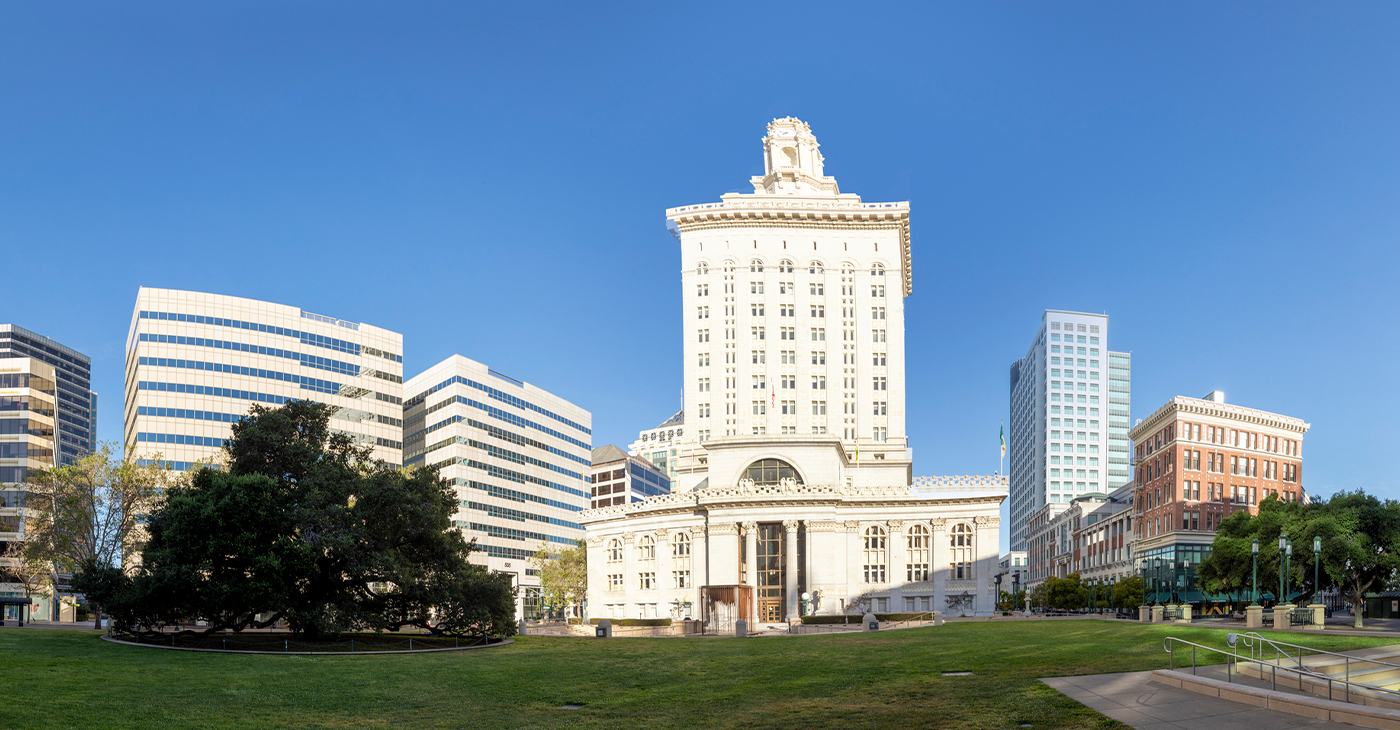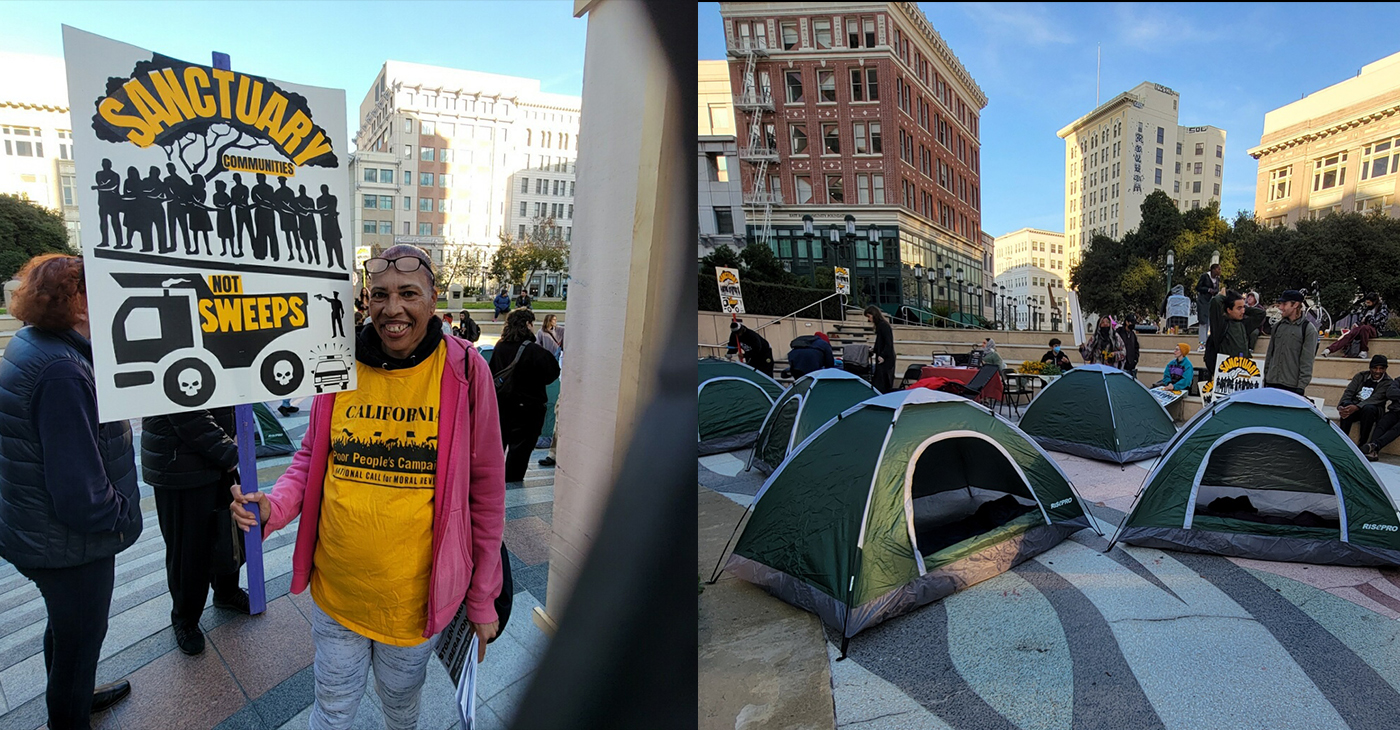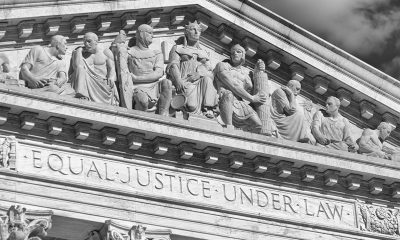Politics
Supreme Court Upholds Nationwide Health Care Law Subsidies

Supporters of the Affordable Care Act hold up signs as the opinion for health care is reported outside of the Supreme Court in Washington, Thursday June 25, 2015. (AP Photo/Jacquelyn Martin)
MARK SHERMAN, Associated Press
WASHINGTON (AP) — The Supreme Court on Thursday upheld the nationwide tax subsidies underpinning President Barack Obama’s health care overhaul, rejecting a major challenge to the landmark law in a ruling that preserves health insurance for millions of Americans.
The justices said in a 6-3 ruling that the subsidies that 8.7 million people currently receive to make insurance affordable do not depend on where they live, as opponents contended.
The outcome was the second major victory for Obama in politically charged Supreme Court tests of his most significant domestic achievement. And it came the same day the court gave him an unexpected victory by preserving a key tool the administration uses to fight housing bias.
Chief Justice John Roberts again voted with his liberal colleagues in support of the health care law. Roberts also was the key vote to uphold it in 2012. Justice Anthony Kennedy, a dissenter in 2012, was part of the majority on Thursday.
“Congress passed the Affordable Care Act to improve health insurance markets, not to destroy them,” Roberts declared in the majority opinion.
Limiting the subsidies only to individuals in states with their own exchanges could well push insurance markets in the other states “into a death spiral,” Roberts wrote.
Justice Antonin Scalia, in a dissent he summarized from the bench, strongly disagreed. “We should start calling this law SCOTUScare,” he said, using an acronym for the Supreme Court and suggesting his colleagues’ ownership by virtue of their twice stepping in to save the law from what he considered worthy challenges.
His comment drew a smile from Roberts, his seatmate and the object of Scala’s ire.
Scalia said that Roberts’ 2012 decision that upheld the law and his opinion on Thursday “will publish forever the discouraging truth that the Supreme Court of the United States favors some laws over others, and is prepared to do whatever it takes to uphold and assist its favorites.”
Justices Samuel Alito and Clarence Thomas joined the dissent, as they did in 2012.
Nationally, 10.2 million people have signed up for health insurance under the Obama health overhaul. That includes the 8.7 million people who are receiving an average subsidy of $272 a month to help pay their insurance premiums.
Of those receiving subsidies, 6.4 million were at risk of losing that aid because they live in states that did not set up their own health insurance exchanges.
The health insurance industry breathed a big sigh of relief, and a national organization representing state regulators from both political parties said the court’s decision will mean stable markets for consumers.
“This decision allows (state officials) to move forward with a level of confidence that their markets will not see significant disruption due to a paradigm shift,” said Ben Nelson, CEO of the National Association of Insurance Commissioners and a former Democratic senator from Nebraska.
Shares of publicly traded hospital operators including HCA Holdings Inc. and Tenet Healthcare Corp. soared after the ruling relieved those companies of the prospect of having to deal with an influx of uninsured people. Investors had worried that many patients would drop their coverage if they no longer had tax credits to help pay.
Republicans said the ruling would not mean the end of the political fight over the law, widely dubbed “Obamacare.”
Sen. Lindsey Graham of South Carolina, a Republican presidential contender, said that for 2016 candidates for Congress or the White House health care will be the “most dominant issue in the country.”
And Senate Majority Leader Mitch McConnell said Democrats who support the law “now have a choice: crow about Obamacare’s latest wobble toward the edge, or work with us to address the ongoing negative impact of a 2,000-page law that continues to make life miserable for too many of the same people it purported to help.”
The challenge devised by die-hard opponents of the law relied on four words — “established by the state” — in the more than 900-page law.
The law’s opponents argued that the vast majority of people who now get help paying for their insurance premiums are ineligible for their federal tax credits. That is because roughly three dozen states opted against creating their own health insurance marketplaces, or exchanges, and instead rely on the federal healthcare.gov to help people find coverage if they don’t get insurance through their jobs or the government.
In the challengers’ view, the phrase “established by the state” demonstrated that subsidies were to be available only to people in states that set up their own exchanges.
The administration, congressional Democrats and 22 states responded that it would make no sense to construct the law the way its opponents suggested. The idea behind the law’s structure was to decrease the number of uninsured. The law prevents insurers from denying coverage because of “pre-existing” health conditions. It requires almost everyone to be insured and provides financial help to consumers who otherwise would spend too much of their paycheck on their premiums.
The point of the last piece, the subsidies, is to keep enough people in the pool of insured to avoid triggering a disastrous decline in enrollment, a growing proportion of less healthy people and premium increases by insurers.
Several portions of the law indicate that consumers can claim tax credits no matter where they live. No member of Congress said that subsidies would be limited, and several states said in a separate brief to the court that they had no inkling they had to set up their own exchange for their residents to get tax credits.
The 2012 case took place in the midst of Obama’s re-election campaign, when Obama touted the largest expansion of the social safety net since the advent of Medicare nearly a half-century earlier. But at the time, the benefits of the Affordable Care Act were mostly in the future. Many of its provisions had yet to take effect.
In 2015, the landscape has changed, although the partisan and ideological divisions remain for a law that passed Congress in 2010 with no Republican votes.
The case is King v. Burwell, 14-114.
___
Associated Press writers Ricardo Alonso-Zaldivar, Connie Cass and Jessica Gresko in Washington and Business Writer Tom Murphy in Indianapolis contributed to this report.
Copyright 2015 The Associated Press. All rights reserved. This material may not be published, broadcast, rewritten or redistributed.
Activism
Oakland Post: Week of December 25 – 31, 2024
The printed Weekly Edition of the Oakland Post: Week of December 25 – 31, 2024

To enlarge your view of this issue, use the slider, magnifying glass icon or full page icon in the lower right corner of the browser window. ![]()
Alameda County
Last City Council Meeting of the Year Ends on Sour Note with Big Budget Cuts
In a five to one vote, with Councilmembers Carroll Fife and Janani Ramachandran excused, the council passed a plan aimed at balancing the $130 million deficit the city is facing. Noel Gallo voted against the plan, previously citing concerns over public safety cuts, while Nikki Fortunato-Bas, Treva Reid, Rebecca Kaplan, Kevin Jenkins, and Dan Kalb voted in agreement with the plan.

By Magaly Muñoz
In the last lengthy Tuesday meeting of the Oakland City Council for 2024, residents expressed strong opposition to the much needed budget cuts before a change in leadership was finalized with the certification of election results.
In a five to one vote, with Councilmembers Carroll Fife and Janani Ramachandran excused, the council passed a plan aimed at balancing the $130 million deficit the city is facing. Noel Gallo voted against the plan, previously citing concerns over public safety cuts, while Nikki Fortunato-Bas, Treva Reid, Rebecca Kaplan, Kevin Jenkins, and Dan Kalb voted in agreement with the plan.
Oakland police and fire departments, the ambassador program, and city arts and culture will all see significant cuts over the course of two phases.
Phase 1 will eliminate two police academies, brown out two fire stations, eliminate the ambassador program, and reduce police overtime by nearly $25 million. These, with several other cuts across departments, aim to save the city $60 million. In addition, the council simultaneously approved to transfer restricted funds into its general purpose fund, amounting to over $40 million.
Phase 2 includes additional fire station brownouts and the elimination of 91 jobs, aiming to recover almost $16 million in order to balance the rest of the budget.
Several organizations and residents spoke out at the meeting in hopes of swaying the council to not make cuts to their programs.
East Oakland Senior Center volunteers and members, and homeless advocates, filled the plaza just outside of City Hall with rallies to show their disapproval of the new budget plan. Senior residents told the council to “remember that you’ll get old too” and that disturbing their resources will only bring problems for an already struggling community.
While city staff announced that there would not be complete cuts to senior center facilities, there would be significant reductions to staff and possibly inter-program services down the line.
Exiting council member and interim mayor Bas told the public that she is still hopeful that the one-time $125 million Coliseum sale deal will proceed in the near future so that the city would not have to continue with drastic cuts. The deal was intended to save the city for fiscal year 2024-25, but a hold up at the county level has paused any progress and therefore millions of dollars in funds Oakland desperately needs.
The Coliseum sale has been a contentious one. Residents and city leaders were originally against using the deal as a way to balance the budget, citing doubts about the sellers, the African American Sports and Entertainment Group’s (AASEG), ability to complete the deal. Council members Reid, Ramachandran, and Gallo have called several emergency meetings to understand where the first installments of the sale are, with little to no answers.
Bas added that as the new Alameda County Supervisor for D5, a position she starts in a few weeks, she will do everything in her power to push the Coliseum sale along.
The city is also considering a sales tax measure to put on the special election ballot on April 15, 2025, which will also serve as an election to fill the now vacant D2 and mayor positions. The tax increase would raise approximately $29 million annually for Oakland, allowing the city to gain much-needed revenue for the next two-year budget.
The council will discuss the possible sales tax measure on January 9.
Activism
Protesters Gather in Oakland, Other City Halls, to Halt Encampment Sweeps
The coordinated protests on Tuesday in San Francisco, Oakland, Vallejo, Fresno, Los Angeles and Seattle, were hosted by Poor Magazine and Wood Street Commons, calling on cities to halt the sweeps and focus instead on building more housing.

By Post Staff
Houseless rights advocates gathered in Oakland, San Francisco, Los Angeles, and other city halls across California and Washington state this week protesting increased sweeps that followed a U.S. Supreme Court decision over the summer.
The coordinated protests on Tuesday in San Francisco, Oakland, Vallejo, Fresno, Los Angeles and Seattle, were hosted by Poor Magazine and Wood Street Commons, calling on cities to halt the sweeps and focus instead on building more housing.
“What we’re dealing with right now is a way to criminalize people who are dealing with poverty, who are not able to afford rent,” said rights advocate Junebug Kealoh, outside San Francisco City Hall.
“When someone is constantly swept, they are just shuffled and things get taken — it’s hard to stay on top of anything,” said Kealoh.
Local houseless advocates include Victoria King, who is a member of the coordinating committee of the California Poor People’s Campaign. She and Dr. Monica Cross co-chair the Laney Poor People’s Campaign.
The demonstrations came after a June Supreme Court ruling expanded local governments’ authority to fine and jail people for sleeping outside, even if no shelter is available. Gov. Gavin Newsom in California followed up with an order directing state agencies to crack down on encampments and urging local governments to do the same.
Fresno, Berkeley and a host of other cities implemented new rules, making it easier for local governments to clear sidewalk camps. In other cities, such as San Francisco, officials more aggressively enforced anti-camping laws already on the books.
-

 Activism4 weeks ago
Activism4 weeks agoOakland Post: Week of November 27 – December 3, 2024
-

 Activism2 weeks ago
Activism2 weeks agoButler, Lee Celebrate Passage of Bill to Honor Congresswoman Shirley Chisholm with Congressional Gold Medal
-

 Activism2 weeks ago
Activism2 weeks agoPost News Group to Host Second Town Hall on Racism, Hate Crimes
-

 Activism2 weeks ago
Activism2 weeks agoDelta Sigma Theta Alumnae Chapters Host World AIDS Day Event
-

 Business2 weeks ago
Business2 weeks agoLandlords Are Using AI to Raise Rents — And California Cities Are Leading the Pushback
-

 Activism3 weeks ago
Activism3 weeks agoOakland Post: Week of December 4 – 10, 2024
-

 Activism2 weeks ago
Activism2 weeks agoOakland Post: Week of December 11 – 17, 2024
-

 Arts and Culture1 week ago
Arts and Culture1 week agoPromise Marks Performs Songs of Etta James in One-Woman Show, “A Sunday Kind of Love” at the Black Repertory Theater in Berkeley






























































